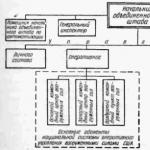Although there is no magical way to instantly memorize new words, the more words you know, the easier it will be for you to connect a new word with familiar ones and thus remember it. Thus, the speed of memorization increases in proportion to the volume of the already studied vocabulary.
There are 4 basic rules that will help you get an extensive vocabulary.
Four easy steps to a good vocabulary
1) Pay attention to the words
Many people are surprised when they are told that they have a small vocabulary. “But I read all the time,” they object. This proves that simply reading may not be enough to learn new words. For example, when we read a novel, there is a great temptation to skip unfamiliar words. Instead of skipping these words, it would be good to take a closer look at them.
First, try to understand the meaning of the word from the context. Then, if you have a dictionary at hand, look up the exact meaning of the word right away. Of course, this will slow down your reading speed for a while, but a better understanding of each word will increase the speed of remembering new words over time and make reading easier. Train yourself to write down new words daily for further study when you read, listen to the radio, watch movies, or chat.
2) Read
After you start paying more attention to new words, the next important step is reading, as it is in books or articles that you will find words that are worth learning. Other than that, reading is also the best way to test how well you learn a new vocabulary. If in the text you meet a word that you have learned before and understand it, this is a clear proof of your success.
What should you read? Yes, everything that interests you, everything that you WANT to read. If you love sports, read articles from sports magazines, books about famous athletes. If you are interested in fashion, glossy magazines are for you. But they need to be READ, and not just look at attractive pictures.
Often people with poor vocabulary do not enjoy reading at all. For them, this is a kind of obligation, because reading is difficult, slow and not at all interesting. If this applies to you, try reading simpler books such as fairy tales or adapted literature. The main thing is to find books that are interesting to read and read as much as possible, always keeping in mind the course of learning new words.
Love working with a dictionary!
3) Use a dictionary
Here are some tips on how to make dictionary lookups part of your vocabulary building strategy.
Get your own dictionary.
Keep it in the room where you usually read at home. You will look into it more often if you do not have to follow it into another room. It is not necessary to immediately buy a large dictionary. The small pocket is also a great start.
Highlight the words you looked up in the dictionary.
After doing this for a while, these words will catch your eye when you scroll through the dictionary, allowing you to repeat them without spending a lot of time.
Read the dictionary entry to the end.
Keep in mind that some words have multiple meanings, and the meaning you need may not be the first value listed in the dictionary. Even if you immediately understand what this word means in this context, knowing other meanings will help you understand how this word can be used in other ways. Especially when there is no time
4) Learn and repeat regularly
Once you start checking words in the dictionary and writing them down, memorization depends on how often you repeat these words. It is best to set aside a certain amount of time each day for this. During this time, you write out new words that you met during the day and repeat those that are not yet firmly entrenched in your memory. Set yourself a goal: how many words you need to learn and by what date, and plan how many words you need to learn per day. 10-15 minutes a day will give better results than 30-40 minutes once a week. But if right now you can set aside only half an hour once a week, start with that. And then try to find extra time during the week.
In order to repeat words more effectively, all information on them should be kept in one place - in a notebook, notebook or on cards. Word cards are convenient because they are easy to carry with you so you can view them anywhere. Make sure you repeat the words fairly regularly.
However, do not throw away cards with learned words. It's so nice to look at the growing stack of elaborated cards. And one day, looking through old cards, you will catch yourself thinking: “Wow! Once upon a time I did not know this word!
If you want to approach the issue of language learning in a comprehensive manner, we will be happy to offer you English courses in our language center. You can watch classes. If your goal is to get maximum communication and have a good time, then you definitely need to visit ours.
You can get acquainted with those who are recruiting or join an already started group. If you are not sure about your level, you can always go online. free or sign up for free and feel everything from the inside of our "kitchen".
Are you familiar with the situation when you speak English and cannot fully express an idea because you do not know the right word?
Small vocabulary is a common problem. Its size determines how freely you can express your thoughts in English.
In this article you will learn:
- How to learn English words to expand vocabulary;
- The best ways to expand vocabulary;
- 3 tips on how to quickly replenish your stock of English words.
How to learn words correctly in order to increase the vocabulary of English words?

The main reason for the lack of vocabulary growth is the wrong method of learning new words. This is when you learn words, and after 3-5 days you remember only a small part.
If you learn English words correctly, then the vocabulary will gradually expand, and you will not forget the words. Follow these tips so you don't waste your time.
1. Learn fewer words, but do it well.
It makes no sense to learn a lot of words if in the end you remember only a few. Do not take 50 words at once. Better take 10-15 words, but work with them properly.
2. Use an English-English dictionary.
Of course, it is easier to look at the translation of a word in an electronic translator or a Russian-English dictionary. But using an English-English dictionary gives certain "pluses":
- You can easily understand the meaning of the word. Indeed, in such dictionaries, not the translation of the word is given, but its meaning (in English).
- Learn similar (synonyms) and opposite words (antonyms) that are given to each word.
- In the English-English dictionary, set expressions are given where this word is used.
At the initial levels, a bilingual dictionary (English-Russian) should be used.
3. See not one, but all the meanings of the word.
Most often, one word has several meanings, and they are completely different. For example, the word break can mean both a hole in something (a crack, a hole) and free time from work (a break).
The more meanings of one word you know, the more correctly you will be able to use it.
4. Constantly use the words you know.
No matter how well you remember a word, if you don't use it, you will forget it. Constantly use the words you have learned.
If you do not have the opportunity to communicate in English every day, then you can mentally describe what you see and learn to think in English.
Attention: Do you want to overcome the language barrier and speak English? Find out in Moscow how our students start speaking in 1 month!
The Best Ways to Expand Your English Vocabulary

These are the most popular ways to help you learn a lot of new words and expressions.
1. Watch movies and series in English.
Who doesn't love watching an interesting movie or series? By doing this in English, you will expand your vocabulary.
Be sure to select a movie / series according to your level of English proficiency. After all, if there are too many unknown words in it, you will simply get tired of watching it.
You can also focus on what vocabulary you need more. For example, when watching the series "Friends" you can replenish your vocabulary with everyday expressions, while watching the series "Office" - with working vocabulary.
2. Listen to English songs and podcasts.
You can always find many interesting and useful expressions in songs. But from passive listening, you will never increase your vocabulary. You need to do it right.
Listening to podcasts is also very helpful. You can choose a podcast according to your level and choose any topic that interests you.
3. Read English books and articles.
Reading is another popular way to build up your vocabulary. However, do not forget that if you want to remember the words, you need to work through them, and not just sign the translation with a pencil over an unknown word.
4. Solve crosswords and play games.
Now there are many games that are aimed at training and memorizing new words. Solve crossword puzzles, add words from letters, look for the right words, etc. All this will help you to replenish your vocabulary and repeat the words you already know.
Movies, series, songs, podcasts, and games will help you gradually increase your vocabulary. But what if you need to top it up within a short period of time? We will open 3 ways that will allow you to do this.
3 Tips to Improve Your English Vocabulary Quickly
1. Learn lists of words on one topic.
Learning words that are united by one topic is much easier than learning everything mixed up.
To do this, you need to take 10-20 words related to one topic. For example, animals, interior items, work, travel, etc. Be sure to choose a topic that is interesting and necessary for you. Why do you need to learn car parts if you don't face it in life?
Have you learned words about work? Make up a short story about what duties you perform and how your work day goes. If you don't have a job yet, dream and talk about your dream job.
If you are learning a language in a group, you can act out skits. It's very fun and helpful. Imagine that one person is an employer, and the other has come for an interview.
2. Learn the most used words.
There are words that people use very often, and there are those that are rarely used.
It is much more useful to learn words that you can use in any situation. For example, in the list of words "work" it is much more useful to include the words: employer, employee, hire, fire, work schedule, etc. These are the words you really need.
If you learn specific words that are not related to your work, you are unlikely to use them. And, as I wrote above, if you do not use words, then you will forget them.
3. Learn the words that are around you.
This exercise will allow you to test and improve your English vocabulary. Look around the room / office / park / restaurant where you spend time. What do you see?
Name each item you see. If you don't know a word, write it down. As a result, you will make your own list of words that you can learn. Thanks to him, you will know the names of the objects around you.
So, if you follow all the methods described in the article, you can significantly replenish your vocabulary. And you definitely won’t have a situation where you want to say or ask something, but you don’t know the right English word.
Friends, how do you learn English words?
Undoubtedly, a rich vocabulary is an indicator of a person's high intellectual development. If you have a beautiful speech, then in the modern world you will be perceived as a person with a good education and culture, a creative person. People who own an extensive vocabulary, in society, as a rule, cause more respect than those who cannot “link a couple of words”. Even if you are already out of childhood, this does not mean at all that you cannot enrich your speech - this is possible at any age.
You probably know that reading books is beneficial for many reasons. This process can help improve memory, diction, and, of course, can positively affect the quality of your vocabulary. Start with those writers whose work is close and understandable to you. Over time, move on to more complex pieces. Pay attention to text containing interesting expressions that you would like to remember and use later. Reread these expressions by ear - so you better remember them. The most interesting of them can be written in a separate notebook.
Expand your vocabulary with smart people
If you want to replenish your vocabulary with interesting adverbial phrases or just clever words, then, of course, you should not neglect communication with intellectuals. If you notice that the speech of the people who surround you is very poor, then, of course, you should understand that you will not gain the necessary skills from communicating with them. Moreover, you yourself can lose the acquired vocabulary.
Don't be afraid to sound stupid by talking to people who know a lot of interesting information - this is one of the most effective ways to increase your intellectual level, and it was unwise not to use it.
Improve your speech and vocabulary by learning new words
When you hear or notice a new word while reading, in no case try to “skip” it - look up the definition in the dictionary. In addition, it is important to note for yourself in which turn of speech this word is used. After that, try to mentally replace it with a suitable synonym. Subsequently, having fully understood the meaning of a previously unfamiliar word, you will be able to replenish your vocabulary with it. To make it easier to remember, try to visualize it in your mind by adding images related to this word. Let the picture in your imagination be as saturated as possible.
For our time, the reference can be called the speech of the middle of the twentieth century - it is as close as possible to modern, but has not yet absorbed various jargon and barbarisms that appeared later. Therefore, it is desirable to give preference to literature predominantly of this period. The books of Russian and English classics will be most effective.
It is also worth noting that there are special books that help in the development of speech. Let's name some of them. First of all, pay attention to the "Mastery of the on-air performance" by B. D., Gaymakova. First of all, the book will be of interest to people who plan to work on television and radio. However, this work will be useful to everyone else. Includes three parts that tell about the rules of public speaking, technique and culture of speech.
We advise you not to ignore the book by N. Gal "The Word Living and Dead". The author is a well-known translator, but her work will be of interest not only to her colleagues. The work will help you find your own style, avoiding the "dead" language.

Learn a new word every day
If you enrich your vocabulary with a new word every day, then, of course, after a while you will be able to show off your new knowledge very effectively. There are many apps and websites on the web that offer to learn new words. Also, communities with this focus exist in VK. It is important to remember that you do not just need to learn unfamiliar words - they should be used in everyday life. In the evening, learn some new concept for yourself, and the next day try to apply it in a conversation with someone. So memorization will be much more efficient.
Hearing an unfamiliar word, be sure to “google” its meaning
As soon as you happen to hear a word whose meaning you do not know or is rather vague for you, memorize it. To be sure, you can write it down on a piece of paper. Subsequently, at the first opportunity, look on the Internet for the meaning of this word.
Read aloud, retell, learn poetry
Reading aloud, as well as memorizing verses, is doubly useful. Thus, you not only develop your memory, but also learn vocabulary and syntax. In Russian, the word order in a sentence can be called quite free, but not everyone uses this freedom to the fullest. Almost every one of us has familiar syntactic constructions at the ready, thereby limiting the lexical range. If you have a task to expand this range, then when constructing phrases, you should use a creative approach. For example, if you are used to using the phrase "I want", then try to replace it with others - "I wish", "I would like" and the like. Of course, reading certain works will help you easily replace previously chosen phrases.
However, quite often, when we start reading, we plunge into the plot, with little or no focus on vocabulary. As a result, the linguistic abundance of a work often passes us by. To avoid this, use this psychological trick: read books that the author wrote in the first person. When you study them slowly and thoughtfully, ready-made phrases will be stored in your memory, which you can later use when talking about yourself.
Replace simple words with complex ones that broaden your horizons
Try to use more complex words in your speech, replacing with them those simple words that you used to use before. To do this, for any words that you regularly use, look for synonyms. So you will significantly enrich and diversify your vocabulary. Do not treat this task as something very difficult and requiring serious energy costs - this is a natural process that can continue until the end of life.
Solve crossword puzzles
Solving crossword puzzles is not just fun, but also a great way to increase vocabulary. Do not neglect this opportunity on vacation, at home, on the road. Pay attention to crossword puzzles that are published in well-known, well-established publications.

Listen to audiobooks
If you spend a lot of time driving and don't have much free time to read fiction and study dictionaries, then listen to audiobooks. Also, this technique is useful for those people who perceive information better by ear. Do not even doubt that if you pass the time in traffic to the sound of a good audiobook, these minutes will do you good.
Watch the video
Sometimes, vocabulary enrichment can occur while watching a variety of videos. We are talking about all kinds of quizzes, intellectual talk shows, documentary projects. Also, do not discount the special courses that contribute to the replenishment of the lexicon. Thus, you can not only have a good time, but also benefit your own self-development. Of course, it is important to distinguish worthwhile materials from unnecessary ones. For example, if you see on a TV program that the next youth reality show or a stupid action movie of the 90s with a corresponding translation is approaching, then it is better to devote time to something else, because such viewing will not only not benefit you, but can also harm .
Note method
You may find it very difficult for you to memorize new terms. In this situation, the already mentioned "note method" will help. Get a pack of stickers, then write a new word on one side of the piece of paper, and its meaning on the other. Now paste the stickers around the apartment. Now "difficult" words will constantly catch your eye, and you will be able to reread their meanings again and again until they are fully learned and included in your usual vocabulary.
Write
You will quickly learn the correct use of new expressions if you engage in writing activities. For this, of course, it is not necessary to be a writer - just set aside at least half an hour a day to write some small text. It can be a simple statement of your own thoughts on a particular occasion.
For example, you can write what you dream about, what kind of people you dislike, what you can admire in another person, and the like. You can even write a multi-page article on a topic that interests you. When you start writing any text, you will have some time to think about your thoughts, thanks to which you will have the opportunity to learn how to correctly use new phrases, briefly inserting them into the text in the right place. Writing is definitely one of the creative activities that activates your mental potential. Naturally, this trains the brain remarkably, allowing you to recall words that you had practically never used in speech before.
The richest and most beautiful Russian language makes it possible for people who speak it to express themselves in a variety of ways. The accuracy of wording and beautiful speech depend on the vocabulary that a person owns. The more words he uses, the more intellectually developed he is considered. Therefore, it becomes important to increase the number of words used.
According to the scientific vocabulary is called a lexicon, meaning words familiar to an individual, group or included in the language. It is conditionally divided into;
- Active. The first group includes words used every day. They are included in both written and spoken language. A sign of an active lexicon is free use that does not require additional effort.
- Passive. Passive words include understandable words that occur in various sources, but are not used in speech, or are used, but extremely rarely. They are used when necessary, but it takes effort to remember.
- External. The external lexicon denotes unknown words related to specific areas of knowledge. These are professional terms, neologisms and so on. It is hardly possible to draw clear boundaries between these groups. They are rather shaky and oscillate to one side or the other. With growing up and mental development, the vocabulary grows.
So, if a child going to the first grade speaks two thousand words, then in the last one this number already grows to five thousand. For those who study and develop further, the vocabulary reaches 10,000 words or more. Then most of them belong to the passive stock.
Erudite people sometimes own even 50,000 words. But, only a small part is used daily in communication. The rest of the lexicon is used only with intellectuals like it.
Vocabulary exercises
The following exercises are done in writing or orally.
- Nouns. They tell a little story using only nouns. "Day. Work. End. Exit. Door. Key. Entrance. Car. Key. Ignition" and so on.
- Verbs. The same thing that was told using nouns is repeated, only with verbs.
- Adjectives and adverbs. Then comes the turn of other parts of speech.
- Alphabet. Come up with related words that sequentially begin with the letters of the alphabet in order. “Alena talks in the evening, walking up to the cherished spruce, gesticulating and eloquently cherishing lovely tender dandelions. Pasha follows nearby, dragging a comfortable chrome-plated lantern, often catching a nimble twittering with extravagant humorous language.
- Monophone. Make up your own speech, the words of which begin with one letter. Each of them is connected with each other, even if the meaning suffers.
It is not easy to complete each of the exercises. But the words gradually move from the passive lexicon to the active one and its replenishment takes place.
Lexicon expansion techniques without extra time
The development of vocabulary, in fact, is necessary for voicing your thoughts, intentions, analysis and conclusions. This skill is reinforced by practice and weakened by its absence. Therefore, in order to develop your speech, you should constantly communicate. Vocabulary growth is ensured: when learning new words that we hear from interlocutors; exact definitions when words are translated from a passive lexicon into an active one.
- Therefore, it is desirable to communicate with dissimilar people. These are friends, neighbors, fellow students, comrades in the gym. People you meet on the Internet in forums and social networking pages, fellow travelers and vendors also serve as an opportunity for communication and as a way to expand your speech.
- Another effective way to replenish your vocabulary, which does not require special time, is listening to audio books. This is relevant when you have to spend a lot of time on the road, driving your car, ideal for auditory people (for people who perceive information better by ear). A variety of books are sold in this format: novels, aphorisms, and philosophical teachings. Having recorded on a flash drive, you can now not be bored in a traffic jam, but listen to a fascinating story. It is convenient to listen to audio books before going to bed.
Replenishment of the lexicon with the allocation of time
The following activities will help you increase your vocabulary.
- Reading. Reading is the richest source of information. Books, newspapers, online publications, magazines - everywhere there are inexhaustible reserves of replenishment of the lexicon. It is advisable to set aside an hour a day for this exciting activity. Sometimes it's good to say the words out loud.
- Studying of foreign language. Do not limit your vocabulary to knowledge of one Russian language. Others are also useful to study. The more a person enriches his speech, the better connections are made, and the easier it is to recall words from memory.
- Games. There are interesting exciting linguistic games: charades, puzzles and the like. When they are guessed, they are involuntarily interested in words and meaning.
- A diary. Another useful activity is keeping a diary. When it is impossible to go to foreign language courses, they write for themselves. This is a good way to improve the vocabulary, as taking notes formulates thoughts that are in the emotional and motivational areas.
- Memorization. Memorization makes it possible to bring new words into the active stock. For this, there is a way of retelling what was heard, memorizing verses and definitions. It is one of the most effective methods of mastering new knowledge.
For this it is important:
- daily include new words in speech;
- use a notebook, entering intricate statements, words, phrases with clever expressions;
- learn the essence of new words by adding a visualization technique;
- memorize poems, quotes, sayings and so on.
To improve the vocabulary, conscious actions are needed. To achieve beautiful speech requires constant training. Ignoring new words will not give them a chance to get into the active or passive vocabulary. It turns out that those who want to expand their vocabulary and enrich their language should make regular strong-willed efforts for this.
The question is often asked how to increase vocabulary? How to increase vocabulary? What's the matter? Why do words end?
Below, the text will detail what needs to be done in order to increase vocabulary words.
First a background, and then - how to increase the vocabulary of colloquial words
How to increase vocabulary?A high school girl was brought to me so that I could teach her how to perform well. My parents insisted that I teach her individually, and not in a group, paying the cost of expensive education.
The girl's vocabulary (colloquial) was almost zero.
But there were “Eh…” “Like…”, “In general…”, “You understand…”, “In short…”. With these words, she operated easily and naturally: "Listen to the joke ...", "I'll tell you right now ...".
I take out a collection of parables. I choose the shortest one. Please retell in your own words.
And here I had a culture shock.
The girl remembered all the words until the middle of the parable. And fired them with a machine gun. One to one to the text. Then she stumbled, forgot a word. And she reached out to look at the leaf.
I take the leaf: "Now - in my own words."
She was never able to fully tell the simplest parable from the collection. Was there no vocabulary? (There was a vocabulary, because she had just read these words.)
 What book to read to increase vocabulary?
What book to read to increase vocabulary? I give the following parable. The task is the same: to retell in your own words. But there was more to the story. The girl's "RAM" was overloaded. She couldn't tell halfway through. She fell silent. So I was able to find the right words to finish my story.
And it became clear what to work with first. Not with gestures and not with pauses. And teach a high school student to speak in your own words, but not memorize words from text.
In fact - TEACH A HUMAN TO SPEAK.
Enrich not so much vocabulary as “colloquial vocabulary”.
By the way, it should be noted that the girl is not stupid, she studied well at school.
For the experiment, he gave the task to write a parable, which she read, but could not tell. The student coped with the task quickly, in a few minutes. And she wrote almost verbatim. Means - problem with speaking.(The problem is not with speech, and not with vocabulary, the problem is with CONVERSATION)
We started to work. After hundreds of parables… my student easily began to retell any parables. And other, even complex, texts. She began to philosophize easily on "free topics". The words "Eh ...", "Like ..." were no longer needed to express themselves. They disappeared.
Time has passed. The girl entered the institute and sent me a letter of thanks that here she is the best speaker at seminars.
Now let's move on to our topic:
How to increase vocabulary?
They even ask me what books to read to increase vocabulary?
First. Please note that we ourselves use small set of words. To convey and explain information in everyday life to us many words are not needed. And so we ourselves We don't speak all the words.
And besides, we don't say all combinations of words.
We manage with a small set of phrases, necessary for everyday communication.
Of which most falls into non-verbal speech (gestures, facial expressions, intonations).
Dear reader!
Please click on the ad from Google as a token of gratitude for the free materials on the site. Thank you very much!
How to improve vocabulary. Second.
To enrich the set of phrases, it is necessary to speak them (but here it is not necessary out loud, it is possible in written speech, it is possible in thoughts, internal dialogue).
IN ORDER TO REMEMBER THE NECESSARY WORDS IMMEDIATELY, THEY SHOULD BE USED.
That is to say often. Remember often. enjoy.
One of the ways to improve the quality of speech is - written speech ( it's not the only way)
That is: write letters, chat, answer questions, explain something, prove something. And so on. This way you can improve your vocabulary.
 It is useful to develop written language. But do not retell, but come up with your own thoughts. It checks and develops vocabulary well.
It is useful to develop written language. But do not retell, but come up with your own thoughts. It checks and develops vocabulary well. And the more new, unfamiliar topics (and words) for written communication, the better!
 At the same time, it is useful to write beautifully and, most importantly, write colloquially
.
At the same time, it is useful to write beautifully and, most importantly, write colloquially
.
Exactly as you say.
Think and write immediately. Right along the line of thought.
Here's how I do it now.
And this is not only my opinion, this is the opinion of many experts.
Everything that you come up with and write down in this way is your ready-made thoughts, ready-made phrases.
This expands our ability to look for the right words. This skill will be transferred to ordinary speech, because the process is the same.
But when you write - no one drives you in the neck, you can really look for right word for a while without worrying. And in written speech, well, no way, you can’t replace a word with a gesture or facial expressions.
Dear reader!
Please click on this advertisement as a token of gratitude for the useful materials on the site. Thank you!
Written language does not replace spoken language!
One more time to remember forever:
WRITTEN SPEECH WILL NOT REPLACE SPEECH
Our vocabulary small and needs to be increased talking!
Even if you are not a speaker. And you are not going to become a speaker. Necessary develop conversation!
It is useful to retell interesting stories found on the Internet. And there are plenty of them out there. And it is not necessary to look for super-unusual news. For learning, a variety of stories that caught your eye, and from which your mood improved, are suitable.
Here is a video, a good example:
Yes. Good to read books!
 Why? In addition to reading books, in fact, not than replenish vocabulary. The speech of the people who surround us is very, very poor in new words. Much poorer than a well-written text in a book.
Why? In addition to reading books, in fact, not than replenish vocabulary. The speech of the people who surround us is very, very poor in new words. Much poorer than a well-written text in a book.
Films also do not have a wide variety of words, especially Hollywood ones, in translation into Russian, only a passive.
To use new words - their useful first read from book. But this is not enough. They should be used in conversation. Use! To make the words read colloquial words. Rich speech is diversity words used.
It is important to translate words from passive to active stock!
The words you read are just passive margin words.
All this applies to both adults and children. Here is the performance of the girl with the parable.
A good effective practical exercise on how to increase vocabulary.
 Tell your friends about the movie you watched (or the book you read). In detail, with emotions.
Tell your friends about the movie you watched (or the book you read). In detail, with emotions.
If you did it easily, and you talked about the film for more than 20 minutes, then you have a vocabulary. If you could only speak in general terms, using the words from the commercial, then you need to learn to speak aloud. You don't have to be a speaker to do this.
Best of all, start by describing movies or books you've read.
Set yourself a task - to retell every movie you watch aloud to your friends, in detail, with emotions ... So that it is a wonderful story, and not a statement of facts and listing scenes from the film. It's the best way to build, expand, and develop vocabulary.
Retell books, and not only impressions, but the whole plot.
Video example of book retelling
What else is useful?
No matter how much you want to quickly start telling everything in a row, it is useful to learn how to speak without junk words.
It's better to watch it right away than to relearn later.
The habit of using junk words instead of useful words can become a problem.
- and subscribe to our YouTube channel. There are many interesting videos.
Gestures
Gestures are also speech. non-verbal speech. Gestures need to be learned as well as the ability to speak.
And it is useful to watch the video:
So what book should you read to increase your vocabulary?
Every person who graduated from high school has already read all the possible words in textbooks. Several times. And do you think these students use all the words they read? No. They use only those words that they began to use in their speech. So retell books more often than you read them. And you can take almost any book. Every good book uses over 3,000 unique words. Is this not enough?
I made several good collections for retelling, there you will find both good stories and wonderful parables:
And in order to perform well, read these books:
Total:
To have a rich vocabulary of words.
 1.
It is not enough to read the words - they must be used. translate "read words" in “words used in speech”. Use these words in your speech and in your internal dialogue.
1.
It is not enough to read the words - they must be used. translate "read words" in “words used in speech”. Use these words in your speech and in your internal dialogue.
2. Write letters, articles using new words. Build passive vocabulary by reading books.
3. Do your homework. Speak their speeches aloud before performances. before important conversations.
4. Tell, retell parables, stories, news, books to your friends. Tell about the book you read or watched movie. This will increase your active vocabulary.
5. And, of course, it is necessary to master the techniques of speaking with a prepared speech, and techniques impromptu performances(not just read about it, but also master it)
THEN, AT THE RIGHT TIME, THE NECESSARY WORDS WILL COME TO YOUR HEAD, AND YOU WILL ALWAYS HAVE SOMETHING TO SAY.
I wish you success!
Dear reader! I am pleased that you have come to my site and read the pages of my book. This book is constantly updated and updated with new pages. Read on. Come again! 🙂


















